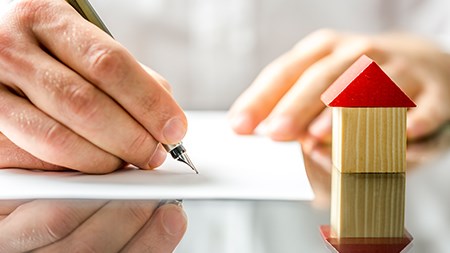The relationship between a landlord and his tenant is often fraught with tension. Just ask the average unhappy tenant and he will most likely tell you that his landlord's sole ambition is to rip him off and make his life as difficult as possible. An unhappy landlord on the other hand, tends to view the situation somewhat differently and feels that no matter how much he does for his tenant, there are always problems, and always reasons to delay paying the rent.
There are of course instances where landlords do not maintain a property to an acceptable level. Similarly, there are tenants who will find every excuse in the book to withhold rental payments. However, there are also a large number of happy tenants who have forged a good working relationship with their landlord and who happily rent the same property for years on end. Likewise, there are landlords who understand the importance of keeping a good tenant happy and who will go out of their way to ensure that any problems are quickly identified and rectified.
Regardless of the circumstances, it takes a fair amount of give and take on both sides to maintain a healthy relationship. It is no different in the relationship between a landlord and a tenant and one of the most, if not THE most important aspect of a sound business relationship is communication - the appropriate kind, not the kind where threats are used.
Michelle Dickens, MD of TPN says she has seen quite a bit of excitement on Twitter, with tenants tweeting, using words that aren't suitable for sensitive readers. She says a well-known radio personality for example recently tweeted: ‘My landlord, in his 60s, overweight and outta shape, tried to take me on just now. Let's just say I gave him his teeth back when he left’.
"With petrol prices at their highest levels yet, nobody needs unnecessary dental bills. So here's our quick and easy guide on how not to fight with your landlord," she says.
- Tenants should never hand over cash, but should rather make an Electronic Funds Transfer (EFT). They should also always ask to see a copy of the estate or letting agent’s Fidelity Fund certificate.
- It is vital for tenants to read their lease agreement before signing.
- They should know exactly what date the rent is due and what extra costs they are liable for, including water, electricity, refuse and sewerage. It is important to note that unless specifically agreed upon, tenants do not automatically have a seven day grace period in which to make a rental payment. Ensure that the lease agreement spells out any potential increase in the rent - this is usually up to 10 percent.
- It is essential to perform an incoming inspection with the landlord. This will enable both the landlord and tenant to record any existing defects and will ensure that the tenant is not held liable for the damage when they vacate the property. It is important to note that the defects do not have to be repaired when the new tenant takes occupation.
- Maintenance issues should be reported to the landlord as soon as possible. It pays for landlords to remember that generally speaking, the quicker a problem is attended to, the lower the cost.
- It is equally important to perform an outgoing inspection with the landlord. If there is no damage, the deposit must be returned within seven days; if there is damage, the deposit must be returned 14 days after the damage has been rectified.
- Tenants should never attempt to withhold the last month's rent by requesting that the agent use the deposit in lieu of payment. This is a breach of contract and could result in a default on the tenant’s credit profile.
Landlords and tenants who cannot resolve a dispute can contact their local branch of the Rental Housing Tribunal.



